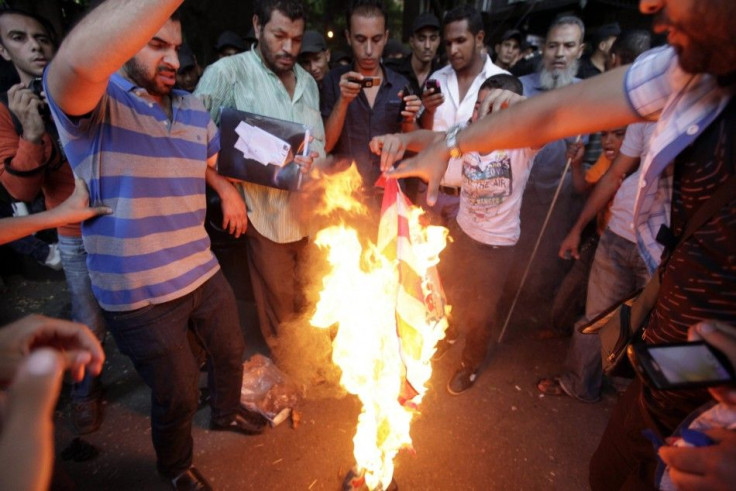Romney Keeps Libya Critique Alive

Sensing weakness in President Barack Obama's foreign policy record, Mitt Romney is continuing to assail the administration's uneven response to attacks that left four Americans dead in Libya.
Central to Romney's argument is his contention that the Obama administration fumbled the response to the situation, initially attributing the assault to a YouTube video that insulted the Prophet Muhammad before acknowledging that the attack was planned by religious extremists.
Vice President Biden defended the administration during a Thursday night debate with Republican vice presidential nominee Paul Ryan, saying the evolving explanation of the attack reflected how the intelligence community changed its assessment over time. But Romney said that explanation contradicted State Department officials who testified to Congress this week about how they previously requested more security for the Benghazi outpost but were turned down.
“There were more questions that came out last night because the vice president directly contradicted the testimony of State Department officials,” Romney told supporters Friday at a campaign event in Richmond. “American citizens have a right to know just what’s going on.”
At first, Romney seemed to undermine himself by swiftly criticizing a conciliatory statement issued by the U.S. embassy in Cairo. Romney's response, in which he argued that the embassy statement reflected Obama's determination "sympathize with those who waged the attacks," earned him reprimands for politicizing a crisis before the facts were clear (the embassy statement came well before popular protests erupted in Egypt around this time).
But the Republican nominee pressed on as President Obama has faced mounting scrutiny over whether the attacks could have been prevented. In a speech earlier this week, Romney said the situation in Libya demonstrated America's diminished influence in the Middle East, charging that "the risk of conflict in the region is now higher than when the president took office."
That is consistent with Romney's argument that President Obama has pursued a timid foreign policy that appeases American adversaries and signals weakness to extremists. In the speech, Romney also charged that "extremists have gained ground across the region."
On Friday, the Obama administration sought to rebut those charges by maintaining, as Biden did, that its response changed as more information emerged.
“We have been very transparent about what we know,” White House press secretary Jay Carney told reporters. “As hours and days and weeks have passed by and more facts have come to light and more has been revealed through the investigations underway, that, you know, we have gained a clearer picture of what happened and what did not happen.”
© Copyright IBTimes 2024. All rights reserved.











